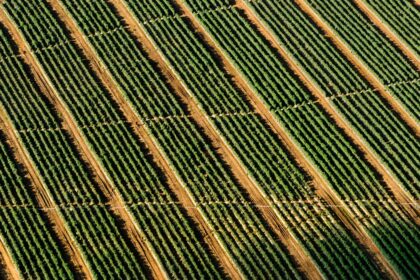
Climate change poses significant challenges to agricultural sectors globally, prompting banks and financial institutions around the world to innovate climate-adaptive finance solutions. From the United States to India, countries are rolling out specialised lending programs to support farmers in managing climate-related risks and building resilience in their operations.
In the United States, where extreme weather events are becoming increasingly common, financial institutions are introducing climate-adaptive crop finance programs. These initiatives utilise advanced data analytics and modelling techniques to assess and mitigate climate risks for farmers. By offering flexible loan terms and innovative risk management tools, such as weather-indexed insurance, farmers are empowered to adapt their farming practices to changing climate conditions while safeguarding their livelihoods.
Similarly, in Europe, banks are ramping up efforts to support climate-resilient agriculture. In countries like the Netherlands, where agriculture is particularly vulnerable to sea-level rise and flooding, financial institutions are offering specialised loans for investments in climate-smart technologies and infrastructure. These investments include precision agriculture tools, water management systems, and greenhouse gas emission reduction initiatives, enabling farmers to mitigate climate risks while enhancing productivity and sustainability.
In India, where agriculture is the backbone of the economy and climate variability is a constant threat, banks are collaborating with government agencies and international organisations to develop innovative finance solutions for farmers. These solutions include crop insurance schemes linked to weather data, micro-finance programs for smallholder farmers, and subsidies for investments in climate-resilient crops and technologies. By leveraging digital platforms and mobile technology, banks are extending their reach to remote rural areas, ensuring that even the most vulnerable farmers have access to climate-adaptive finance options.
In Australia, where droughts, bushfires, and heatwaves are becoming more frequent and severe, banks are stepping up efforts to support climate-resilient agriculture. Through initiatives like climate-adaptive crop finance, banks are offering tailored lending programs that integrate climate data analytics and risk management tools. These programs empower farmers to make informed decisions about crop selection, irrigation practices, and land management strategies, reducing their vulnerability to climate-related shocks and building resilience in their operations.
Across the globe, financial institutions are recognising the importance of supporting farmers in adapting to climate change. By providing access to climate-adaptive finance solutions, banks are not only helping farmers mitigate climate risks but also contributing to broader efforts to build a more sustainable and resilient food system. As climate change continues to pose challenges to agriculture, innovative finance solutions will play a critical role in ensuring the long-term viability of farming communities worldwide.
Climate-adaptive crop finance is a crucial tool for building resilience in agriculture and mitigating the impacts of climate change on farmers’ livelihoods. By leveraging data analytics, risk management tools, and innovative finance solutions, banks around the world are empowering farmers to adapt to changing climate conditions and build a more sustainable and resilient agricultural sector. As we continue to face the challenges of climate change, collaboration between governments, financial institutions, and farmers will be essential in creating a more resilient and sustainable future for agriculture.
